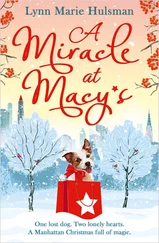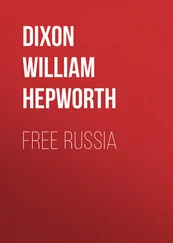Nikolai Nekrasov - Who Can Be Happy and Free in Russia?
Здесь есть возможность читать онлайн «Nikolai Nekrasov - Who Can Be Happy and Free in Russia?» весь текст электронной книги совершенно бесплатно (целиком полную версию без сокращений). В некоторых случаях можно слушать аудио, скачать через торрент в формате fb2 и присутствует краткое содержание. Год выпуска: 2005, Жанр: Поэзия, на английском языке. Описание произведения, (предисловие) а так же отзывы посетителей доступны на портале библиотеки ЛибКат.
- Название:Who Can Be Happy and Free in Russia?
- Автор:
- Жанр:
- Год:2005
- ISBN:нет данных
- Рейтинг книги:3 / 5. Голосов: 1
-
Избранное:Добавить в избранное
- Отзывы:
-
Ваша оценка:
- 60
- 1
- 2
- 3
- 4
- 5
Who Can Be Happy and Free in Russia?: краткое содержание, описание и аннотация
Предлагаем к чтению аннотацию, описание, краткое содержание или предисловие (зависит от того, что написал сам автор книги «Who Can Be Happy and Free in Russia?»). Если вы не нашли необходимую информацию о книге — напишите в комментариях, мы постараемся отыскать её.
Who Can Be Happy and Free in Russia? — читать онлайн бесплатно полную книгу (весь текст) целиком
Ниже представлен текст книги, разбитый по страницам. Система сохранения места последней прочитанной страницы, позволяет с удобством читать онлайн бесплатно книгу «Who Can Be Happy and Free in Russia?», без необходимости каждый раз заново искать на чём Вы остановились. Поставьте закладку, и сможете в любой момент перейти на страницу, на которой закончили чтение.
Интервал:
Закладка:
D'you think that the peasants
Know one from another? 370
A shabby one—he wants
An expert to sell him,
But trust me to part with
The fat and the fierce."
"You don't want officials?"
"To Hell with officials!"
However they took one
Because he was cheap:
A minister, striking
In view of his stomach 380
As round as a barrel,
And seventeen medals.
The merchant is serving
With greatest politeness,
Displaying and praising,
With patience unyielding,—
A thief of the first-class
He is, come from Moscow.
Of Blücher he sells them
A hundred small pictures, 390
As many of Fótyi [17] Well-known popular characters in Russia.
The archimandrite,
And of Sipko[17] the brigand;
A book of the sayings
Of droll Balakireff[17]
The "English Milord," too.
The books were put into
The packs of the pedlars;
The pictures will travel
All over great Russia, 400
Until they find rest
On the wall of some peasant—
The devil knows why!
Oh, may it come quickly
The time when the peasant
Will make some distinction
Between book and book,
Between picture and picture;
Will bring from the market,
Not picture of Blücher, 410
Not stupid "Milord,"
But Belinsky and Gógol!
Oh, say, Russian people,
These names—have you heard them?
They're great. They were borne
By your champions, who loved you,
Who strove in your cause,
'Tis their little portraits
Should hang in your houses!
"I'd walk into Heaven 420
But can't find the doorway!"
Is suddenly shouted
By some merry blade.
"What door do you want, man?"
"The puppet-show, brothers!"
"I'll show you the way!"
The puppet-show tempted
The journeying peasants;
They go to inspect it.
A farce is being acted, 430
A goat for the drummer;
Real music is playing—
No common accordion.
The play is not too deep,
But not stupid, either.
A bullet shot deftly
Right into the eye
Of the hated policeman.
The tent is quite crowded,
The audience cracking 440
Their nuts, and exchanging
Remarks with each other.
And look—there's the vodka!
They're drinking and looking,
And looking and drinking,
Enjoying it highly,
With jubilant faces,
From time to time throwing
A right witty word
Into Peterkin's speeches, 450
Which you'd never hit on,
Although you should swallow
Your pen and your pad!…
Some folk there are always
Who crowd on the platform
(The comedy ended),
To greet the performers,
To gossip and chat.
"How now, my fine fellows,
And where do you come from?" 460
"As serfs we used only
To play for the masters, [18] Each landowner kept his own band of musicians.
But now we are free,
And the man who will treat us
Alone is our Master!"
"Well spoken, my brothers;
Enough time you've wasted
Amusing the nobles;
Now play for the peasants!
Here, waiter, bring vodka, 470
Sweet wine, tea, and syrup,
And see you make haste!"
The sweet sparkling river
Comes rolling to meet them;
They'll treat the musicians
More handsomely, far,
Than their masters of old.
It is not the rushing
Of furious whirlwinds,
Not Mother Earth shaking— 480
'Tis shouting and singing
And swearing and fighting
And falling and kissing—
The people's carouse!
It seems to the peasants
That all in the village
Was reeling around them!
That even the church
With the very tall, steeple
Had swayed once or twice! 490
When things are in this state,
A man who is sober
Feels nearly as awkward
As one who is naked….
The peasants recrossing
The market-place, quitted
The turbulent village
At evening's approach.
CHAPTER III
THE DRUNKEN NIGHT
This village did not end,
As many in Russia,
In windmill or tavern,
In corn-loft or barn,
But in a large building
Of wood, with iron gratings
In small narrow windows.
The broad, sandy high-road,
With borders of birch-trees,
Spread out straight behind it— 10
The grim étape—prison. [19] The halting-place for prisoners on their way to Siberia.
On week-days deserted
It is, dull and silent,
But now it is not so.
All over the high-road,
In neighbouring pathways,
Wherever the eye falls,
Are lying and crawling,
Are driving and climbing,
The numberless drunkards; 20
Their shout fills the skies.
The cart-wheels are screeching,
And like slaughtered calves' heads
Are nodding and wagging
The pates limp and helpless
Of peasants asleep.
They're dropping on all sides,
As if from some ambush
An enemy firing
Is shooting them wholesale. 30
The quiet night is falling,
The moon is in Heaven,
And God is commencing
To write His great letter
Of gold on blue velvet;
Mysterious message,
Which neither the wise man
Nor foolish can read.
The high-road is humming
Just like a great bee-hive; 40
The people's loud clamour
Is swelling and falling
Like waves in the ocean.
"We paid him a rouble—
The clerk, and he gave us
A written petition
To send to the Governor."
"Hi, you with the waggon,
Look after your corn!"
"But where are you off to, 50
Olyénushka? Wait now—
I've still got some cakes.
You're like a black flea, girl,
You eat all you want to
And hop away quickly
Before one can stroke you!"
"It's all very fine talk,
This Tsar's precious Charter,
It's not writ for us!"
"Give way there, you people!" 60
The exciseman dashes
Amongst them, his brass plate
Attached to his coat-front,
And bells all a-jangle.
"God save us, Parasha,
Don't go to St. Petersburg!
I know the gentry:
By day you're a maid,
And by night you're a mistress.
You spit at it, love…." 70
"Now, where are you running?"
The pope bellows loudly
To busy Pavloósha,
The village policeman.
"An accident's happened
Down here, and a man's killed."
"God pardon our sins!"
"How thin you've got, Dashka!"
"The spinning-wheel fattens
By turning forever; 80
I work just as hard,
But I never get fatter."
"Heh, you, silly fellow,
Come hither and love me!
The dirty, dishevelled,
And tipsy old woman.
The f—i—ilthy o—l—d woman!"
Our peasants, observing,
Are still walking onwards.
Интервал:
Закладка:
Похожие книги на «Who Can Be Happy and Free in Russia?»
Представляем Вашему вниманию похожие книги на «Who Can Be Happy and Free in Russia?» списком для выбора. Мы отобрали схожую по названию и смыслу литературу в надежде предоставить читателям больше вариантов отыскать новые, интересные, ещё непрочитанные произведения.
Обсуждение, отзывы о книге «Who Can Be Happy and Free in Russia?» и просто собственные мнения читателей. Оставьте ваши комментарии, напишите, что Вы думаете о произведении, его смысле или главных героях. Укажите что конкретно понравилось, а что нет, и почему Вы так считаете.











